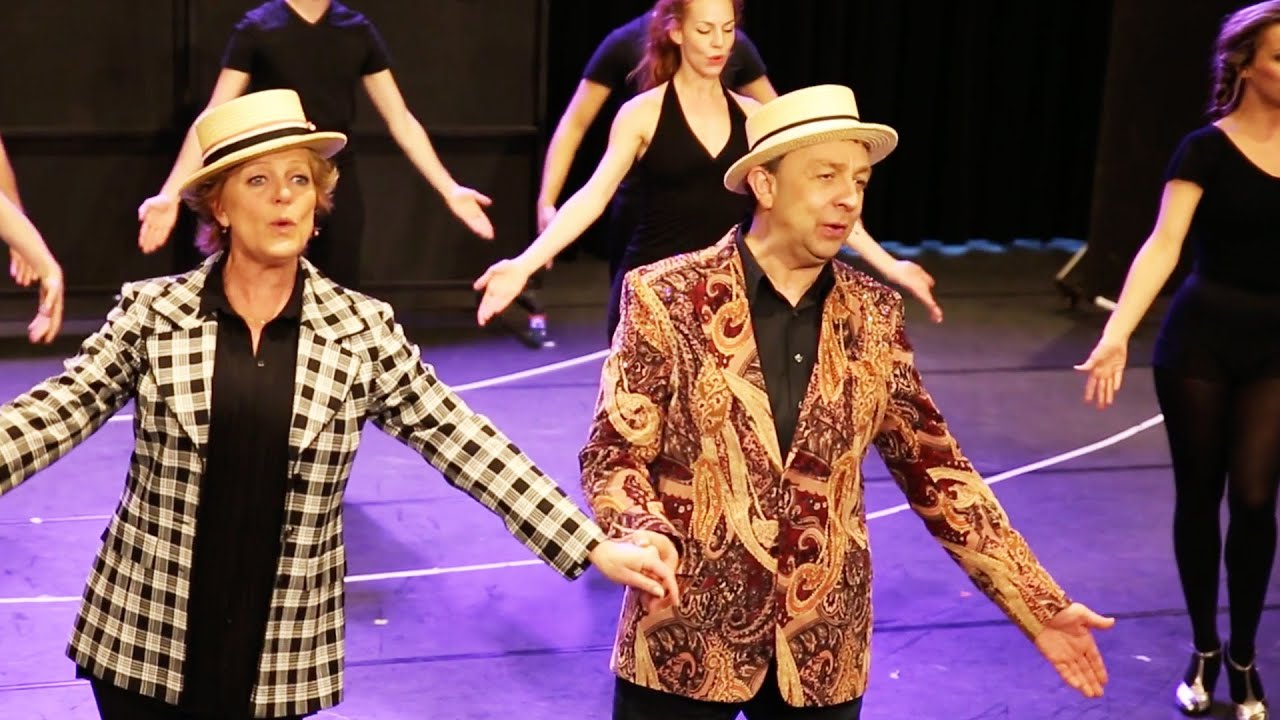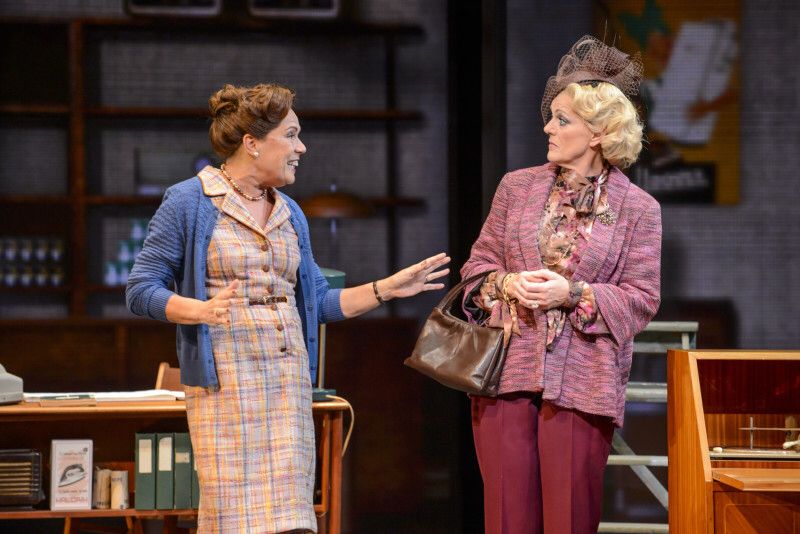Moeder Ik Wil Naar De Revue

Remember that catchy tune that instantly transports you to a bygone era of glitz, glamour, and theatrical spectacle? If you're Dutch, chances are that tune is "Moeder, Ik Wil Naar De Revue" (Mother, I Want to Go to the Revue). This song, more than just a simple melody, is a cultural touchstone, a window into the history of Dutch entertainment, and a reminder of the power of dreams. But what *is* a revue, and why does this song resonate so deeply with generations of Dutch people?
What is a Revue?
Before diving into the song itself, let's define what exactly a revue is. A revue is a type of theatrical entertainment that combines elements of music, dance, comedy, and spectacle. Think of it as a variety show on a grand scale. Revues typically lack a central narrative; instead, they present a series of loosely connected sketches, musical numbers, and dance routines. They often feature lavish costumes, impressive sets, and a large cast of performers.
Here are some key characteristics of a revue:
- Variety: A mix of singing, dancing, comedy, and specialty acts.
- Spectacle: Elaborate costumes, sets, and staging.
- Topicality: Often features satire and commentary on current events.
- Star Power: Typically headlined by well-known performers and comedians.
- Lack of Narrative: Focuses on individual segments rather than a cohesive story.
In the early 20th century, revues were immensely popular, offering a form of escapism and entertainment that appealed to a wide audience. They were a vibrant and exciting part of the cultural landscape, showcasing the talents of singers, dancers, comedians, and designers. "Moeder, Ik Wil Naar De Revue" captures the allure and excitement surrounding these grand theatrical productions.
"Moeder, Ik Wil Naar De Revue": A Song That Captures a Dream
The song, composed by Alexander Pola with lyrics by Peter Rijkhoff, tells the story of a child pleading with their mother to take them to the revue. It's a simple premise, but the song’s melody is incredibly infectious, and the lyrics perfectly capture the anticipation and excitement of a child eager to experience the magic of the theatre. The song paints a vivid picture of the revue as a fantastical place filled with music, laughter, and wonder.
Think about the last time you eagerly anticipated something – a holiday, a concert, a special event. This song perfectly mirrors that feeling of childlike wonder and the burning desire to be part of something exciting and glamorous. The lyrics emphasize the child's longing, highlighting the revue as a symbol of happiness and escape from the everyday routine.
The repeated phrase, "Moeder, ik wil naar de revue," becomes a mantra, a heartfelt plea that resonates with anyone who has ever yearned for something special. The simplicity of the language and the catchy melody make the song instantly memorable and easy to sing along to, contributing to its enduring popularity.
Why is it so enduring?
There are several reasons why "Moeder, Ik Wil Naar De Revue" remains so beloved in the Netherlands:
- Nostalgia: The song evokes a sense of nostalgia for a bygone era of Dutch entertainment. It reminds people of simpler times and the magic of live theatre.
- Catchy Melody: The song's infectious melody is instantly memorable and easy to sing along to.
- Relatability: The theme of childhood yearning and the desire for something special is universally relatable.
- Cultural Significance: The song has become deeply ingrained in Dutch culture, passed down through generations and performed at countless events and celebrations.
- Simplicity: The straightforward lyrics and uncomplicated melody make it accessible to people of all ages and backgrounds.
The Revue's Place in Dutch Cultural History
The revue held a significant place in the entertainment landscape of the Netherlands, particularly during the first half of the 20th century. Before the widespread adoption of television and other forms of mass media, live theatre was a primary source of entertainment for many people. Revues offered a dazzling and engaging experience that brought communities together. They were often performed in large theatres and attracted large audiences, contributing to the growth of the entertainment industry.
Consider the impact of social changes on entertainment preferences. As society evolved, so did the themes and styles of revues. They often reflected the social and political climate of the time, offering satirical commentary and lighthearted escapism. This adaptability contributed to their lasting popularity.
While the traditional revue format may have declined in popularity in recent decades, its influence can still be seen in contemporary forms of entertainment. Elements of the revue, such as variety acts, musical performances, and comedy sketches, continue to be incorporated into television shows, stage productions, and other forms of entertainment.
Relatability and Inclusivity
The song's relatability transcends generations. Whether you grew up attending revues or simply heard the song on the radio, it evokes a sense of shared experience and cultural identity. The simple message of a child yearning for something special resonates with everyone, regardless of their age or background. Everyone has experienced that feeling of wanting something intensely.
Let's think about how we can connect this song to our own lives. Perhaps you can remember a time when you eagerly anticipated a trip to the circus, a visit to an amusement park, or a special holiday celebration. These experiences, like the child's desire to attend the revue, create lasting memories and shape our understanding of joy and excitement. The song acts as a bridge, connecting us to our past and to each other.
Furthermore, the song's simplicity makes it accessible to a wide range of people. The lyrics are easy to understand, and the melody is easy to sing. This inclusivity contributes to its enduring appeal. It's a song that can be enjoyed by people of all ages, backgrounds, and musical tastes.
The Lasting Value of "Moeder, Ik Wil Naar De Revue"
In conclusion, "Moeder, Ik Wil Naar De Revue" is more than just a song; it's a cultural artifact that reflects the history of Dutch entertainment, the power of nostalgia, and the universal appeal of childhood dreams. It's a reminder of the importance of live theatre and the joy of shared experiences. By understanding the song's context and its enduring appeal, we can gain a deeper appreciation for its significance in Dutch culture.
So, the next time you hear that familiar tune, take a moment to reflect on the magic of the revue and the timeless message of the song. Embrace the nostalgia, celebrate the cultural heritage, and remember the simple joy of wanting something special. This song serves as a valuable reminder of the importance of art and entertainment in our lives and the power of music to connect us to our past and to each other.
By exploring the history and significance of this song, we can gain a better understanding of Dutch culture and the enduring power of art to shape our lives. Understanding the 'waarde', the value, of our cultural heritage enriches our present and helps us pass on important traditions to future generations.


Bekijk ook deze gerelateerde berichten:
- Lied Vrede Op Aarde
- Star Wars Return Of The Jedi
- Reviews Budget Alles In 1
- Hoeveel Mensen Passen Er In Het Philips Stadion
- De Muis En De Leeuw
- Mechanische En Neurogene Lumbale Pijn
- Welke Thee Is Goed Voor De Maag
- Washington Dc Is In Which State Of Usa
- Notre Dame De Paris Victor Hugo
- European Convention On Human Rights Article 8
